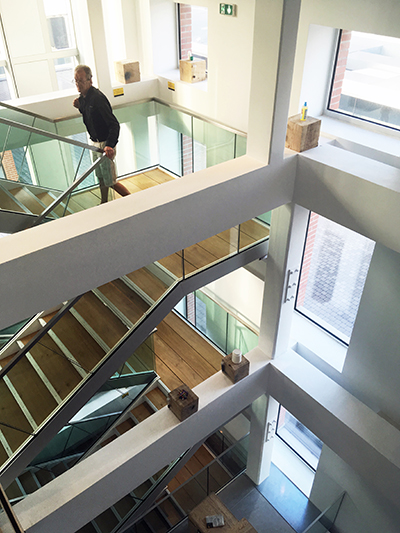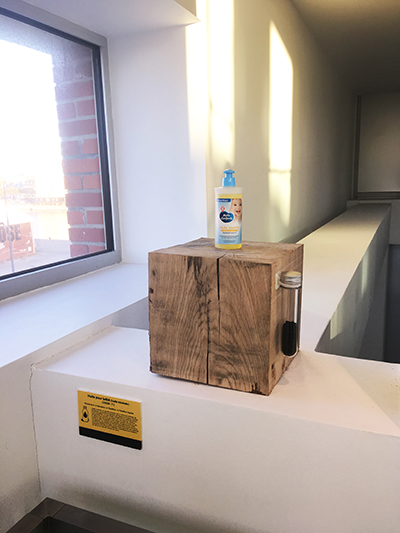
The Pores of our Skin are Full of Plastic:
A Brief History of Petrochemicals
for the exhibition Or Noir
Halle-aux-Sucree Learning Center
Dunkerque, France, 2018 - 2019
with TU Delft History of Architecture and Urban Planning
Exhibition design and research as Honors Program/Research Assistant
in collaboration with Carola Hein and Paolo de Martino
Exhibition designed around a series of architecture student speculations to go "beyond oil", situated around historical research and interactive questions. In the context of a learning center the exhibition showed a pragmatic explanation of the history of petrochemicals and how deeply embedded they have become in our lives not only in terms of energy and economy but also how this has affected the built environment and social relationships.
This was shown through a historical timeline of oil and Dunkirk port, a researched video, diagrams of the refining process as well as everyday objects consisted of oil that might surprise young visitors.

"Over the past century and a half, oil-its extraction, transportation, refining, processing and consumption - has significantly altered the structure of our world, in various ways, both tangible and intangible, linked together. It is through oil that our relationship to the built environment is now passing, but also the social relations that form our daily life.
Today, the hegemony of oil is being called into question. After having built itself with oil, after having dreamed of the infinite transformations of raw and telluric matter, is the contemporary world capable of doing without?
Previous energy transitions, to coal or oil, have had such an enormous impact on all aspects of human existence that, in order to design a post-oil transition, we need to look closely at what the consequences would be, take into account our existing environment, question the continued presence of past energy heres, and see what would need to be restructured.
To go "beyond oil", we will therefore have to design new solutions that envisage how to radically redefine our relationship to energy, to our natural and built environment, and to each other."















"All plastics, nylons, acryrlics, latex, acetones, vinyls, aspahlt, parrafin waxs, and more are derived from oil. We wear these materials. We play with them. We walk on them. We put them on our skin. We use them to clean and present ourselves. We eat with them. We even consume and put them inside our bodies. As these materials have shaped so much of our environment, we have become to depend on them; and with oil everywhere around us, it is hard for us to imagine anything different. It has ‘urbanised’ our world, and our bodies and behaviors have become become an exten- sion of this urbanism. Intertwined in this oil network, how do we escape?"






